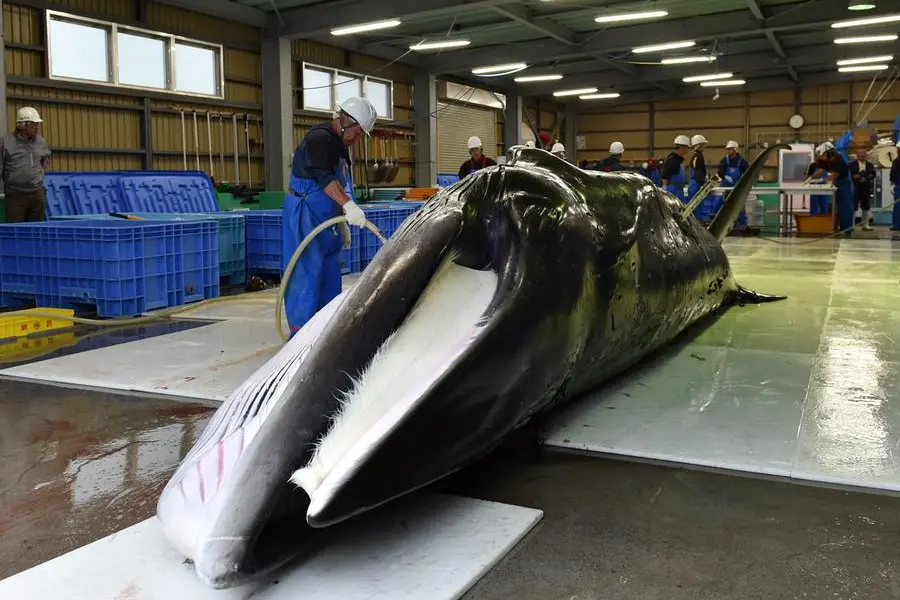PHOTO
Japan's new whaling mothership will this month make its maiden voyage, an industry official said, with plans for the huge vessel to catch around 200 whales in 2024.
The country is one of only three to allow commercial whaling along with Norway and Iceland, and the government calls the controversial practice an integral part of Japanese culture.
Weighing nearly 9,300 tonnes, the new lead vessel of Japan's whaling flotilla will set off on May 21 for a hunting expedition along the northeastern coast of the country.
The state-of-the-art factory ship called the Kangei Maru will embark with a smaller vessel from the southwestern port of Shimonoseki, an official at the Japan Whaling Association told AFP on Wednesday.
He said the association was "excited" about the 7.5 billion yen ($48 million) mothership commissioned to replace the three-decade-old Nisshin Maru, which retired last year.
Anti-whaling activist groups used to aggressively pursue the Nisshin Maru on its annual whale-hunting trips to Antarctica, taking credit for reduced catch.
For years, the issue of whaling was a diplomatic flashpoint for Japan, which came under attack for exploiting an International Whaling Commission (IWC) loophole to hunt whales for "scientific" purposes.
The country pulled out of the IWC in 2019 and resumed commercial whaling inside its economic waters -- a move slammed by conservationists but welcomed by Japanese whaling communities.
The Kangei Maru, which can process and store whale meat on board, was completed this year in Shimonoseki and unveiled by whaling company Kyodo Senpaku Kaisha.
"Just as we built this mothership, we also need to build a market" for whale meat, company president Hideki Tokoro told reporters at the unveiling ceremony.
Japan has hunted whales for centuries, and the meat was a key source of protein in the years after World War II.
But the country's appetite for whale meat has declined from around 200,000 tonnes consumed annually in the 1960s to current levels of around 1,000 or 2,000 tonnes.
To try to boost consumption, Kyodo Senpaku Kaisha has installed whale-meat vending machines in Tokyo and other locations.
The company also says it has been working with foreign influencers to promote the meat and its place in Japanese tradition.
Iceland resumed its controversial whaling operations last year under stricter conditions and monitoring following a two-month hiatus over animal welfare concerns.





















